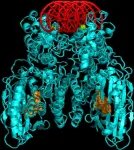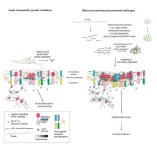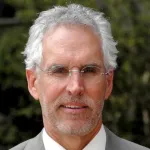(Press-News.org) In May 1953, Filipino ornithologist D. S. Rabor collected a single female fruit dove on the forested slopes of an active volcano on the Philippine island of Negros. The small apple green bird, which had yellow edgings on its wings and prominent circles of bare skin around its eyes, was unlike any other known pigeon species. In 1954, Rabor and Yale professor Dillon Ripley described the unique specimen as Ptilinopus arcanus, a name inspired by the Latin word for “secret.”
The Negros Fruit Dove, as it is commonly known, has never been seen or recorded again, and remains one of the world's most enigmatic and poorly understood birds. In the absence of any new information, ornithologists have speculated that the bird could be an aberrant individual or a hybrid of two other well-known species.
Now, after more than 70 years, this unique specimen is finally revealing its secrets.
Using DNA sequencing techniques, a team of Yale biologists, led by John Nash, a senior in Yale College, have demonstrated that the Negros Fruit Dove is a very distinct, ancient lineage within the evolutionary radiation of Ptilinopus fruit doves. This species diverged from the other fruit doves in this group nearly 12 million years ago, well before Negros Island had emerged from the seafloor. This suggests that arcanus enjoyed a much broader distribution earlier in its evolutionary history, the researchers say.
Their findings are published in the International Journal of Avian Science, a publication of the British Ornithologists' Union.
“When I arrived at Yale 20 years ago, we dreamed of solving the mystery of this unique bird,” said co-author Richard Prum, the William Robertson Coe Professor of Ornithology of Ecology and Evolutionary Biology in Yale’s Faculty of Arts and Sciences. “But we had to wait for the right technology and the right student to really pull it off.”
To help guide future efforts to potentially relocate and conserve the species — which may still exist in the wild — the authors also modeled the biogeographic history of montane (or mountain) and lowland forests, where it may be more likely to be found, during the Pleistocene epoch, a period marked by dramatic climate change. They argue that that the only known fact about the Negros Fruit Dove — its occurrence on Negros — is more consistent with the biogeographical pattern of montane species in this region.
Accordingly, they identified several poorly explored locales, most notable montane forests in North Negros National Park and on the nearby island of Panay, as areas that should be urgently surveyed for any surviving members of this species.
Nash, who is studying ecology and evolutionary biology at Yale, believes the enigmatic species may yet have more secrets to reveal.
“Having studied its genetics and phylogeny in the lab, I would love to spearhead efforts to rediscover it in the wild,” he said.
END
A Filipino fruit dove, long part of Peabody collection, reveals its secrets
2024-02-06
ELSE PRESS RELEASES FROM THIS DATE:
New study finds “sweet spot” for length of yarn-shaped supercapacitors
2024-02-06
As interest in wearable technology has surged, research into creating energy-storage devices that can be woven into textiles has also increased. Researchers at North Carolina State University have now identified a “sweet spot” at which the length of a threadlike energy storage technology called a “yarn-shaped supercapacitor” (YSC) yields the highest and most efficient flow of energy per unit length.
“When it comes to the length of the YSC, it’s a tradeoff between power and energy,” said Wei ...
New approach to tackling bacterial infections identified
2024-02-06
New York, NY (February 6, 2024)—Researchers at the Icahn School of Medicine at Mount Sinai have identified a new approach to controlling bacterial infections. The findings were described in the February 6 online issue of Nature Structural & Molecular Biology [DOI # 10.1038/s41594-024-01220-x].
The team found a way to turn on a vital bacterial defense mechanism to fight and manage bacterial infections. The defense system, called cyclic oligonucleotide-based antiphage signaling system (CBASS), is a natural mechanism ...
Study: Using Nutrition Facts labels linked to healthier eating choices among eighth and 11th grade students
2024-02-06
Using the Nutrition Facts labels to make food choices is significantly associated with healthy eating among eighth and 11th grade students in Texas, although the proportion of students using nutrition labels to make their food choices is low, according to research from UTHealth Houston.
A study led by first author Christopher D. Pfledderer, PhD, MPH, assistant professor in the Department of Health Promotion and Behavioral Sciences at UTHealth Houston School of Public Health, and senior author Deanna Hoelscher, PhD, RDN, the John P. McGovern Professor in Health Promotion and regional dean of the ...
Researchers at UMass Amherst discover key to molecular mystery of how plants respond to changing conditions
2024-02-06
AMHERST, Mass. – A team of researchers from the University of Massachusetts Amherst recently published a pioneering study that answers a central question in biology: how do organisms rally a wide range of cellular processes when they encounter a change—either internally or in the external environment—to thrive in good times or survive the bad times? The research, focused on plants and published in Cell, identifies the interactions between four compounds: pectin, receptor proteins FERONIA and LLG1 and the signal RALF peptide. In particular, the team discovered that a molecular condensation process, called liquid-liquid phase separation, that ...
Patients with cancer who suffered a major adverse financial event more likely to be diagnosed with advanced stage disease
2024-02-06
New findings led by researchers at the American Cancer Society (ACS) and the National Cancer Institute (NCI) show more than one-third of cancer patients had a major adverse financial event – bankruptcy, lien, or eviction – before their cancer diagnosis. These patients with adverse financial events (AFEs) had a later-stage diagnosis compared with patients with no events. The findings are published today in the Journal of Clinical Oncology (JCO).
“Patients with a previous AFE not only face greater likelihood of more advanced cancer but also may encounter substantial barriers to receiving recommended care ...
Improving quality of life and sleep in people with memory problems without using drugs
2024-02-06
PHILADELPHIA (February 6, 2024) – A groundbreaking study from the University of Pennsylvania School of Nursing (Penn Nursing), recently published in Innovation in Aging, has shown promising results in improving the quality of life (QOL) and sleep quality in individuals living with memory problems. The research delves into the efficacy of a nonpharmacological approach in a trial known as the Healthy Patterns Sleep Program.
Nancy Hodgson, PhD, RN, FAAN, the Claire M. Fagin Leadership Professor in Nursing and Chair of Department of Biobehavioral Health ...
Mitsuo Uematsu selected as Fellow of The Oceanography Society
2024-02-06
The Oceanography Society (TOS) congratulates Emeritus Professor Mitsuo Uematsu on his selection as a Fellow. The citation for this honor recognizes his pioneering research on long-range atmospheric transport of Asian dust across the Pacific Ocean and its impact on marine biogeochemistry.
The nomination materials noted that Dr Uematsu’s research is of the highest quality and notable for its interdisciplinarity and international leadership, as well as its pioneering and continuing nature. These contributions are exemplified through his service on several international scientific committees such as Future Earth and the Executive ...
Claudia Benitez-Nelson selected as Fellow of The Oceanography Society
2024-02-06
The Oceanography Society (TOS) congratulates Claudia Benitez-Nelson on her selection as a Fellow. The citation on her certificate recognizes her outstanding contributions to understanding marine biogeochemical cycling and her exceptional commitment to mentoring and increasing diversity in ocean sciences.
The nomination materials noted that Dr. Benitez-Nelson is “one of the leading oceanographers of her generation…the world leader in the global phosphorus cycle, the use of isotopes (thorium) for quantifying export processes, and how carbon is transformed as it flows from coastal systems ...
Rutgers University Center for Ocean Observing Leadership selected to receive the Oceanography Society's Ocean Observing Team Award
2024-02-06
The Oceanography Society (TOS) congratulates the Rutgers University Center for Ocean Observing Leadership (RUCOOL) team on its selection as the recipient of the TOS Ocean Observing Team Award. This award recognizes innovation and excellence in sustained ocean observing for scientific and practical applications. The citation on the team’s certificate recognizes RUCOOL for transforming oceanography by sharing their pioneering sampling platforms, sensing methods, and their integration in models and education.
Rutgers University’s Center of Ocean Observing Leadership has ...
Phillip R. Taylor selected as Fellow of The Oceanography Society
2024-02-06
The Oceanography Society (TOS) congratulates Phillip R. Taylor for being named a Fellow. The citation on Dr. Taylor’s certificate recognizes him for the “expansion and diversification of the ocean sciences at national and international levels and for building cooperative interactions among agencies and scientific fields.”
Dr. Taylor’s nomination noted his “singular strength was a willingness to work with agency partners (within and outside of NSF) and science community leaders to develop novel programs that attracted additional investment, ...







